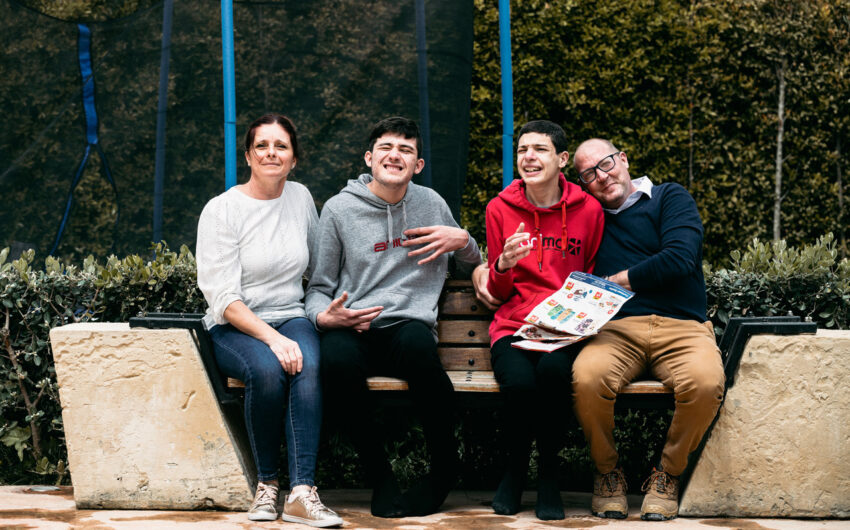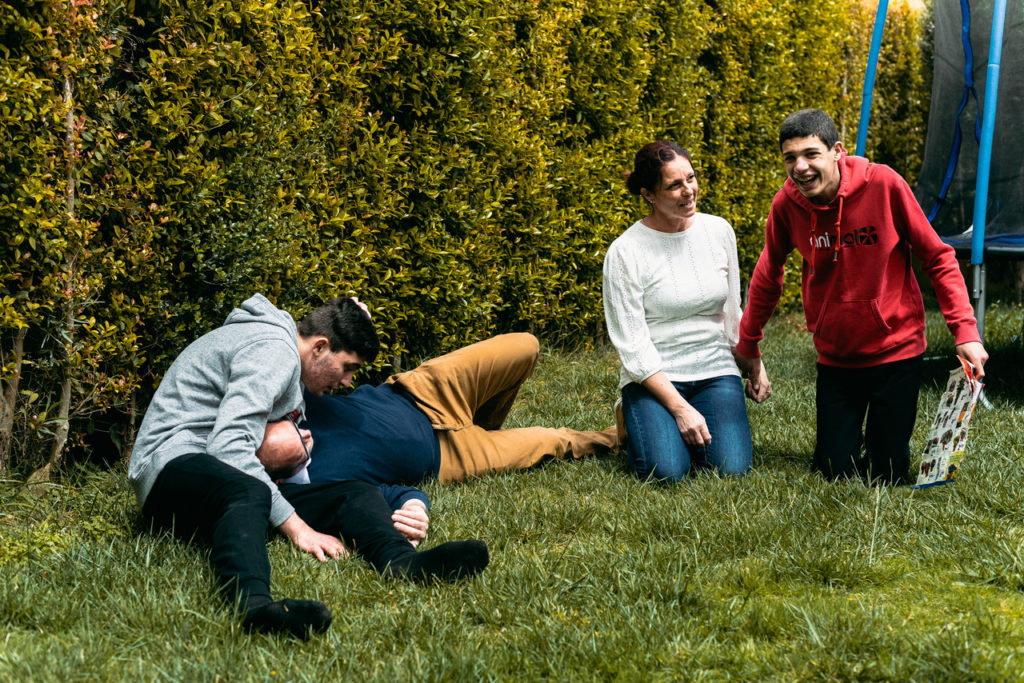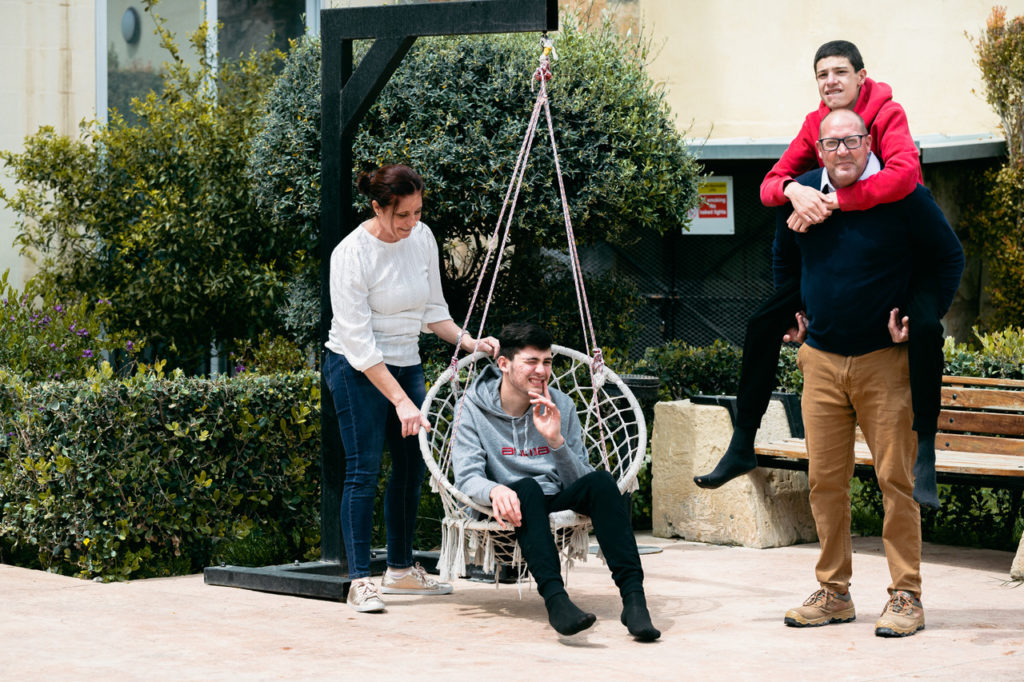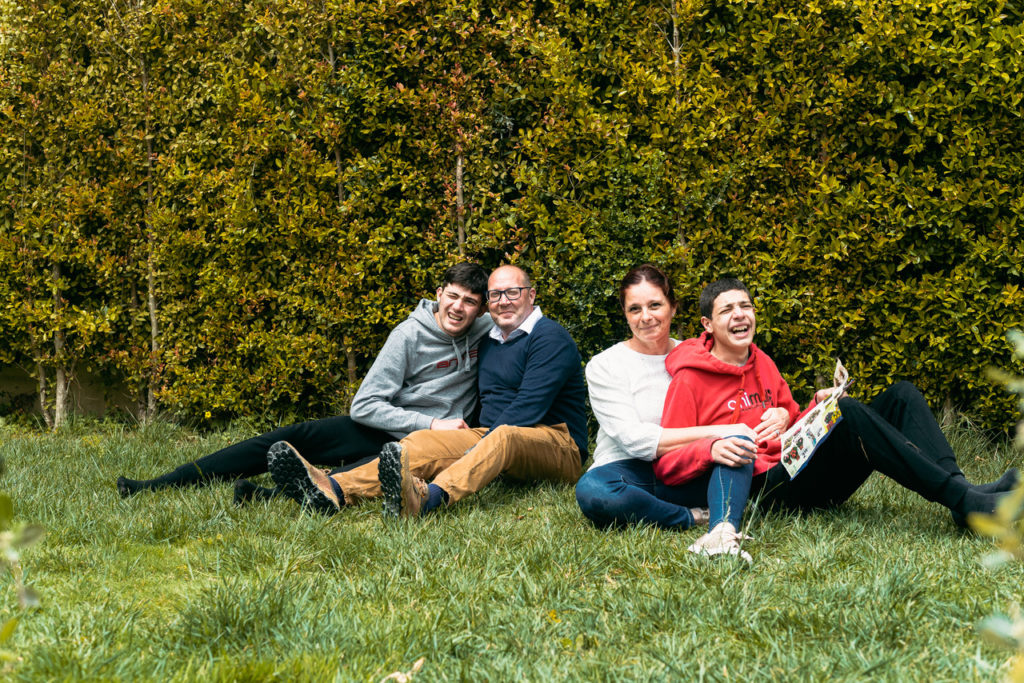
Mark and Loredana Fitzgerald have twin sons with autism, Andreas and Matthias, who were born on October 13, 2004.
Raising their boys has not been an easy journey, but despite the many challenges and hurdles experienced over the past 16 years, parenthood has filled them with countless surprises and blessings and made them realise that they have given their children the best encouragement to be able to live as independently as possible within the community.
“While keeping our feet on the ground, we really hope that our story of suffering on the one hand and of love, positivity and strength on the other will serve as inspiration,” says Mark, who is technical supervisor of the Commonwealth War Graves Commission.
“My wife and I were thrilled to find out we would have twins. The big day arrived and our children were born. “As new parents, we led a normal life, until one day, when the boys were about nine months old, we noted a lack of eye contact and that Andreas was flapping his hand in a strange manner. Over time, as we continued to observe the twins closely, we also noticed they had a difficulty with communicating and didn’t react when calling them by their names. So that was it. We knew something was wrong.”
Around the age of two, the parents took Andreas and Matthias to a specialist in order to monitor their development. After several assessments and a neurofeedback test, the boys were diagnosed with autism.”
Starting school, a major milestone for all children and their parents, was traumatic for the twins. “At the time they were each assigned a learning support educator and their academic progress was closely monitored. However, neither of them showed much interest in school and, very often, my wife and I ended up doing their homework ourselves. This is when we took the decision to focus more on their independent living skills through an individual educational programme rather than on their academic progress.”
This seemed to work better with both Andreas and Matthias. While the school emphasised on their academic development, Mark and Loredana worked with the boys on their personal survival, self-help and independent living skills.
“On several occasions, during the boys’ primary school years, both my wife and I had to pick them up, as they wouldn’t want to stay, and there was a time, especially when my father and mother-in-law passed away, that the children sensed our negative vibes, throwing many a tantrum in frustration. During this difficult phase, my wife had to give up her job to take on the role of a full-time mother, as the stress was too much to handle.”
Growing up, the twins’ individual behavioural challenges were extremely hard to cope with, also due to their stark differences in character.
“It was never easy to find the right balance, and pleasing both has been a time-consuming exercise, both mentally and physically. Desperately wanting to be involved in their lives 24/7, as a couple, we never found time for ourselves. We were fully immersed in our twins’ world,” Mark explains.
Three years ago, life for the Fitzgeralds took a turn for the better. Andreas and Matthias started attending Casa Apap Bologna in Mosta, run by HILA, which offers residential and respite services.
“The boys have been following an individual programme tailored specifically to their needs and have adapted well to living within a community of people who teach them a host of new skills on a daily basis. They have settled nicely and are happy to have their own circle of friends with whom they can comfortably communicate, play and have fun with. This has truly been a ray of hope for the boys, as well as for us parents,” Mark says.
“HILA wanted to make it work and, as a family, we wanted it too. And it did. We are all much calmer and less stressed and Loredana and I have learnt to focus on the twins’ own ways – through an individual approach rather than a mainstream one which, ultimately, works better for my boys.”
Janet Silvio, executive director of HILA, said it takes time to get to know a person with autism. “It’s also a process based on an element of trust. Winning the boys’ trust over time, we could start working with them, exploring and learning about their world as we go along. For us too, it’s a continuous learning curve. So far, the programme has been successful. Matthias and Andreas are two different individuals with their own needs and likes. We observe them and give them the time they need. Even though they are non-verbal, you can still listen with your eyes.”
What do Mark and Loredana ultimately wish for? “That the beautiful smiles on our boys’ faces never wear off,” is their quick reply.
“We have never seen the twins happier and this is our most precious prize.”



